Inside the app, you will find a promo code for a discount on your first tour!
It is commonly believed that September and October are not the best months to visit Phuket due to waves and frequent rains. However, it is during this period that one of the most impressive and controversial events takes place — the Vegetarian Festival. At this time, local residents, subjecting themselves to harsh trials, attract the attention of tourists from all over the world. The festival is filled with ancient rituals emphasizing faith and spiritual strength and reflects the unique culture of Phuket.
History and Origin of the Festival
The origin of the festival is shrouded in legends. There are two main versions of its emergence, but both boil down to the same idea: the festival originated as a way to purify the body and spirit, as well as to express gratitude to the gods for healing.
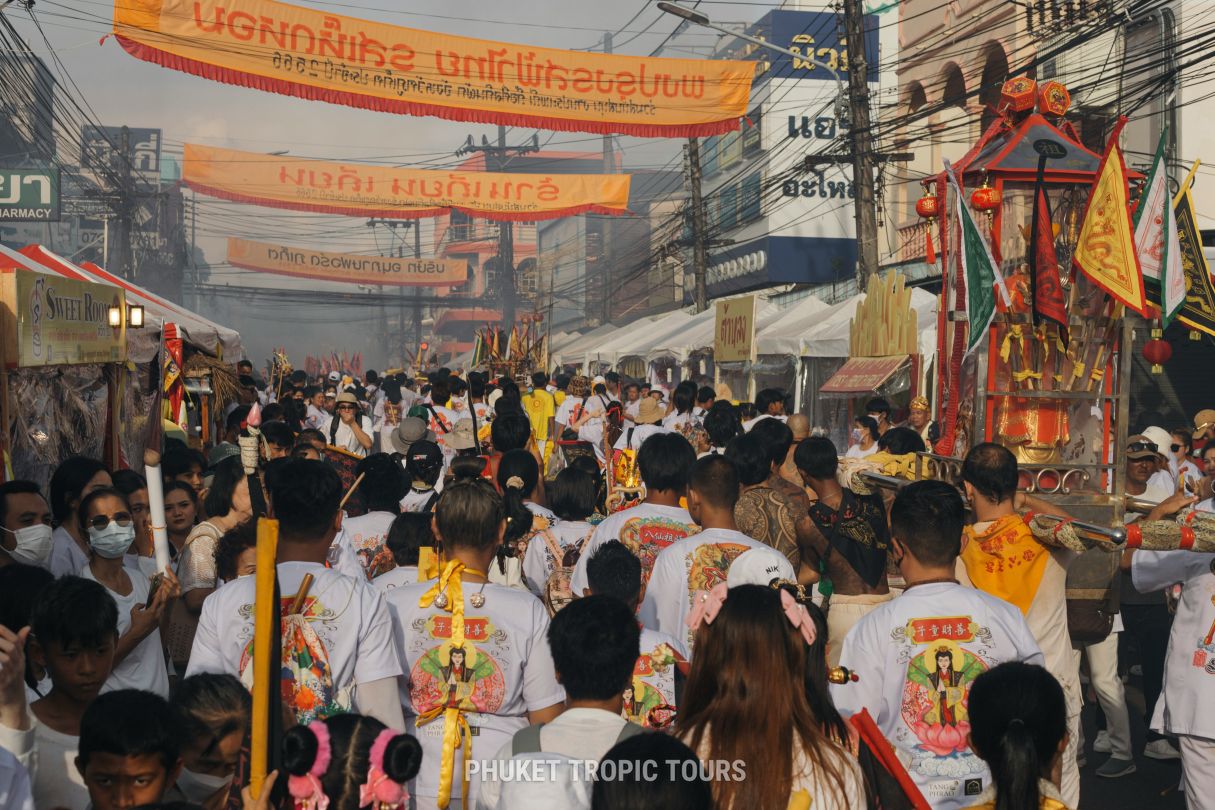
The first theory claims that the festival began thanks to a Chinese opera troupe touring in Phuket in the 19th century. During performances, the actors fell ill with a mysterious disease and, by following a strict vegetarian diet and spiritual rituals in honor of the Nine Emperor Gods (Dao), they managed to recover. The residents of Phuket adopted these practices, laying the foundation for the festival. 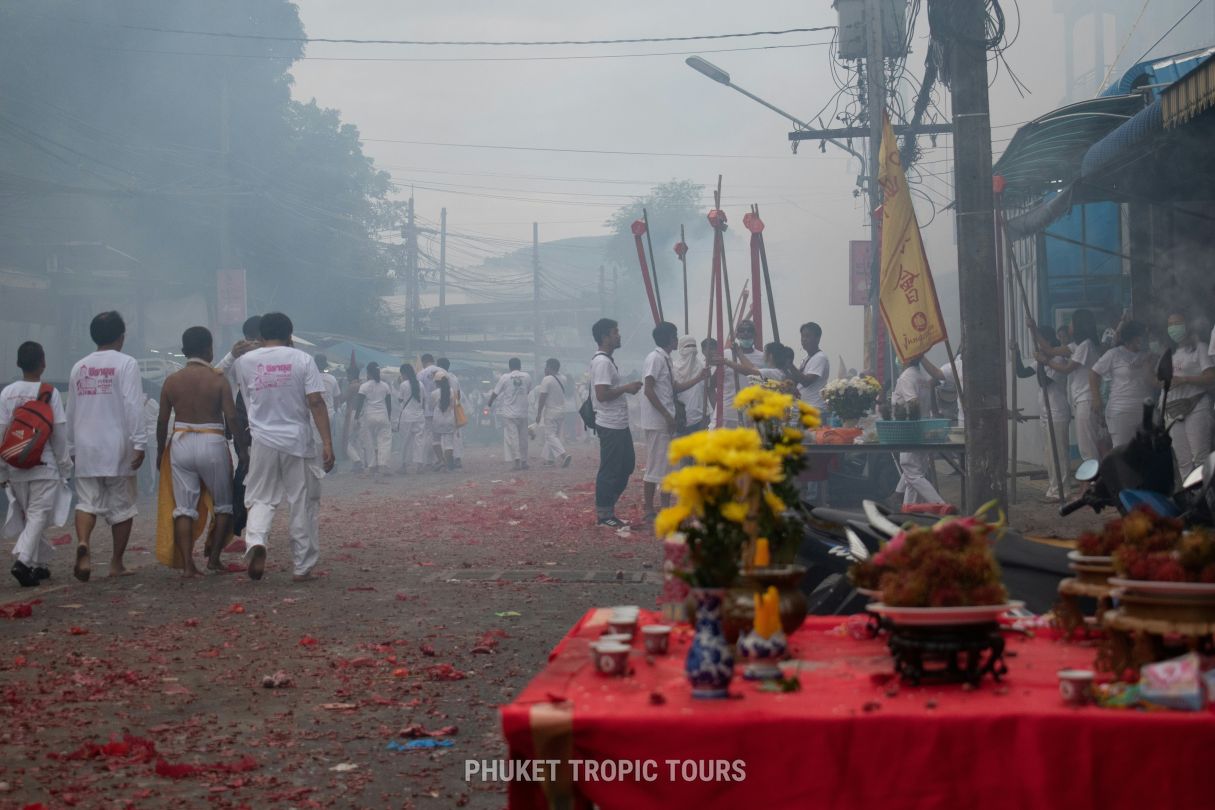
The second theory suggests that the festival was brought to Phuket by Chinese settlers who introduced the customs of worshipping the Nine Emperor Gods. The ritual of purification through abstaining from meat and maintaining spiritual purity was believed to bring health and good luck.
Main Events
The festival begins with an opening ceremony when a tall bamboo pole is raised in every Chinese temple in Phuket, believed to invite the gods. Spectacular street parades and processions, where participants dressed in white perform acts of self-mortification, are key moments. They pierce their cheeks and perform other rituals, believing that the gods protect them from pain. 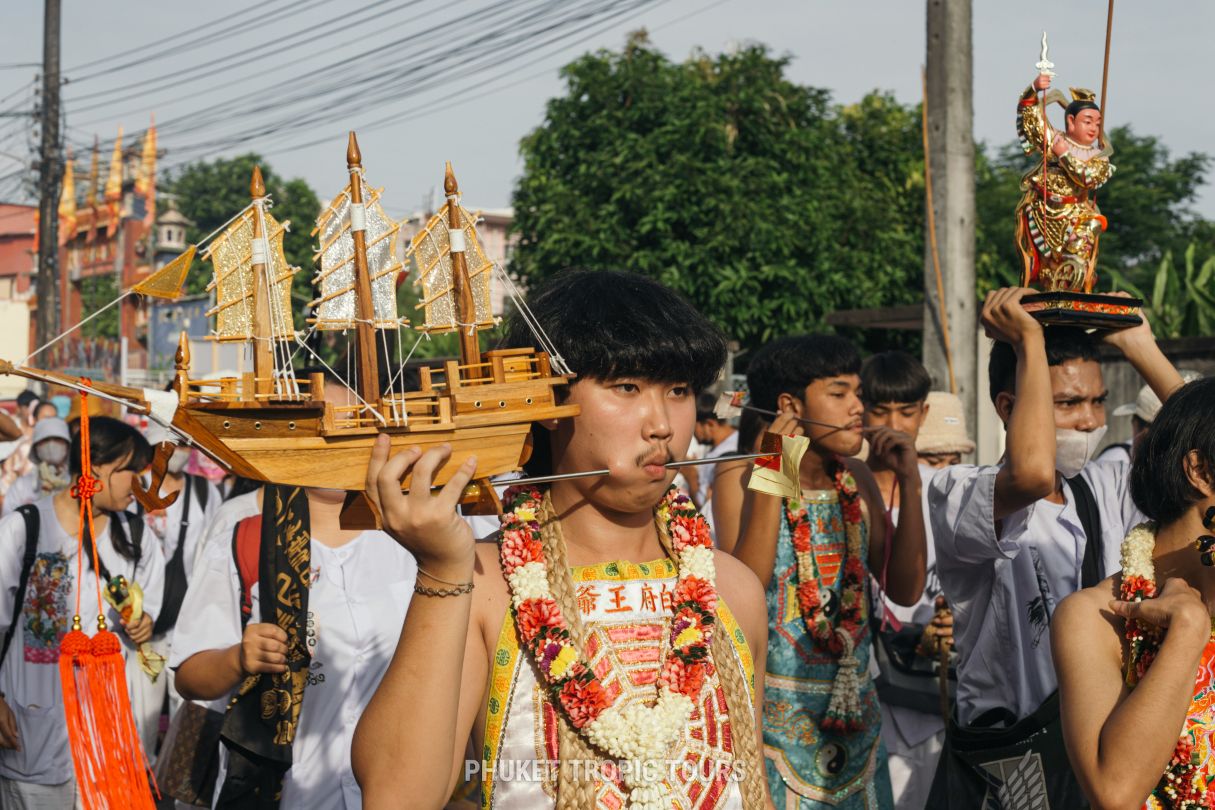 In temples, purification rituals are held, including walking on hot coals and climbing a ladder with sharp blades. The festival concludes with fireworks and a ritual farewell to the gods.
In temples, purification rituals are held, including walking on hot coals and climbing a ladder with sharp blades. The festival concludes with fireworks and a ritual farewell to the gods.
Culinary Aspect
The culinary aspect of the festival is no less significant. During the 9 days, participants adhere to a strict vegetarian diet. Numerous stalls offering vegetarian food, marked with yellow flags, can be found on the streets of Phuket. Popular dishes include fried noodles, rice with vegetables, and various desserts.
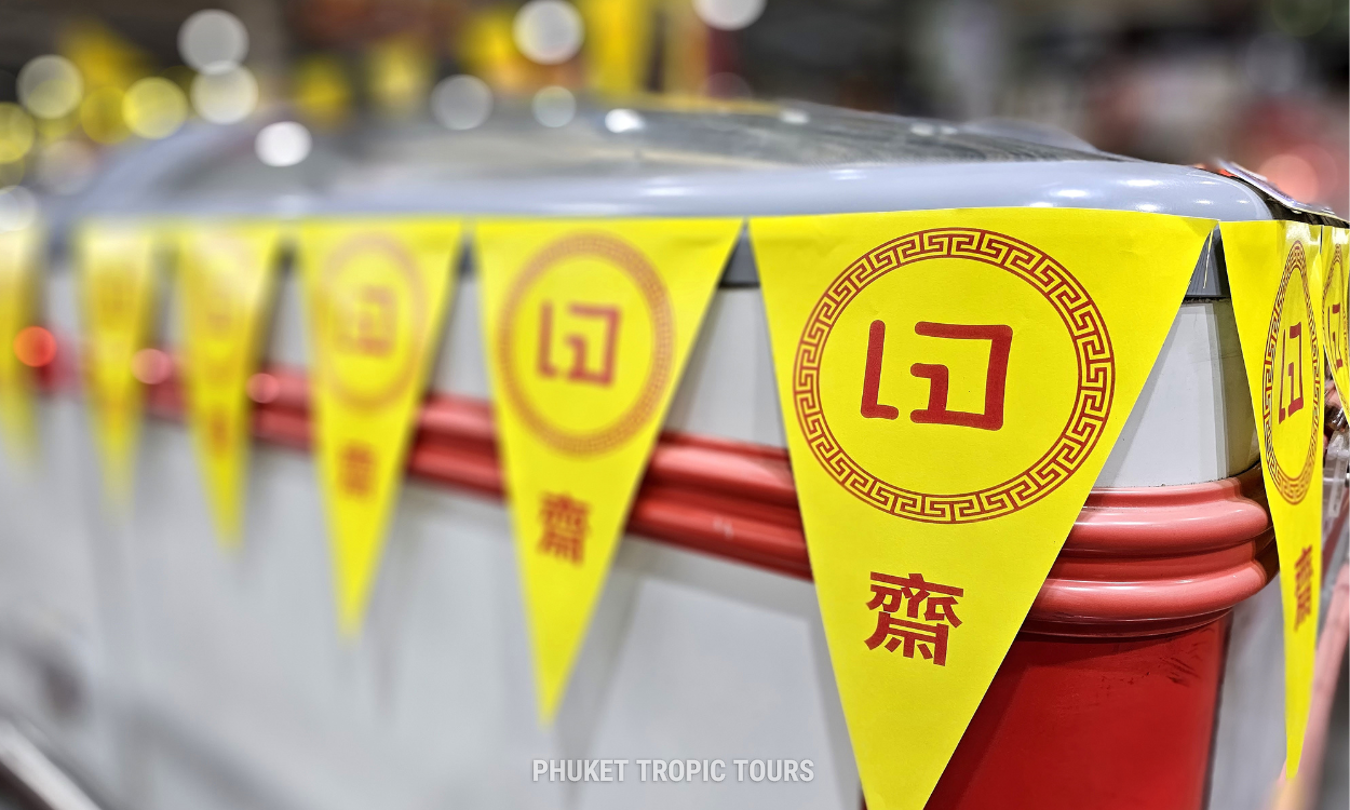
Interesting Facts About the Festival
Flags and Symbols. During the festival, you can see yellow flags with red hieroglyphs on Phuket streets — these indicate places serving vegetarian food. Even if you are not a vegetarian, this is a great opportunity to try local dishes at a low cost and discover a new taste of Thailand.
Dress Code. If you want to participate in festival events, it is best to wear white clothing — this color symbolizes purity and respect for local traditions. White is considered an important element emphasizing the spiritual purification underlying the festival. 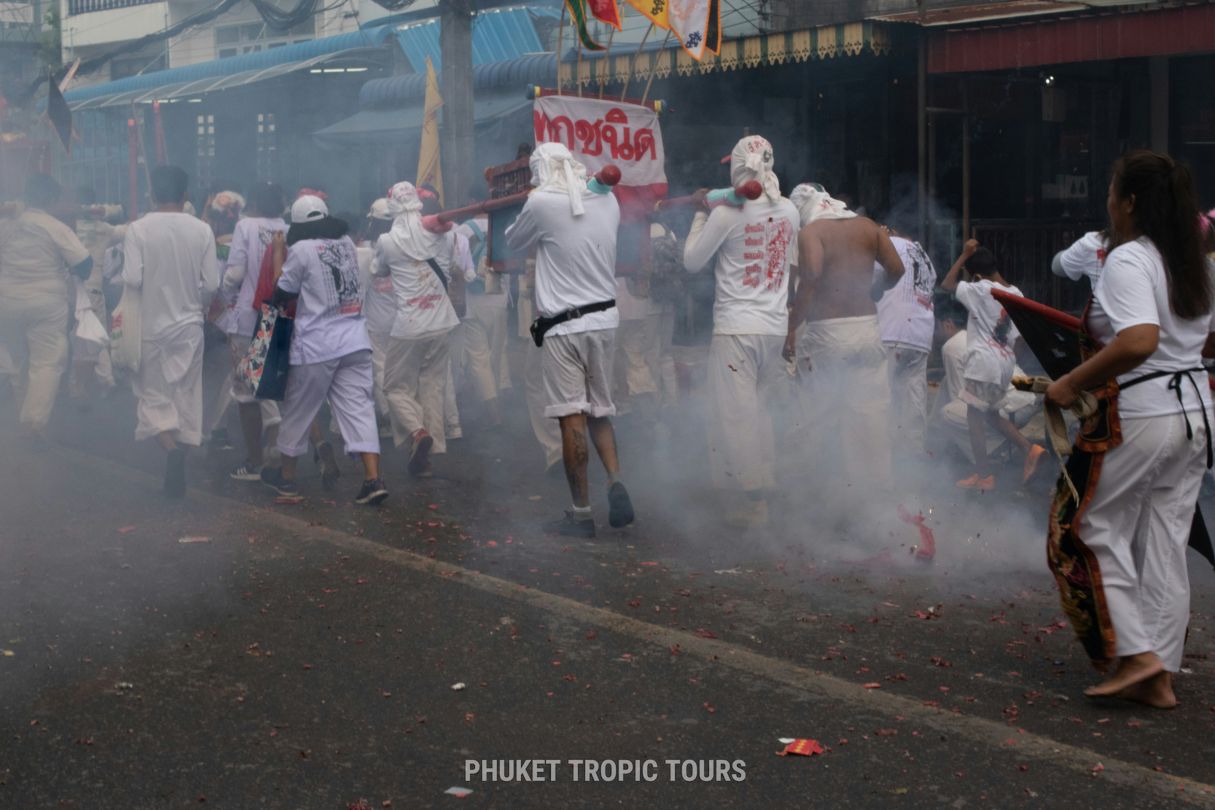 During the processions, the streets are filled with the sounds of drums, the explosions of firecrackers, and the aromas of incense, creating an unparalleled festive atmosphere. You may also encounter people with wounds on their cheeks — these are participants of the rituals who believe the gods protect them from pain.
During the processions, the streets are filled with the sounds of drums, the explosions of firecrackers, and the aromas of incense, creating an unparalleled festive atmosphere. You may also encounter people with wounds on their cheeks — these are participants of the rituals who believe the gods protect them from pain.
Practical Information for Tourists
In 2024, the Vegetarian Festival will take place from October 3 to 11. The main events are held in Phuket Town, but rituals can be seen all over the island. Wearing white clothing is recommended as a sign of respect for the traditions, though it is not mandatory.
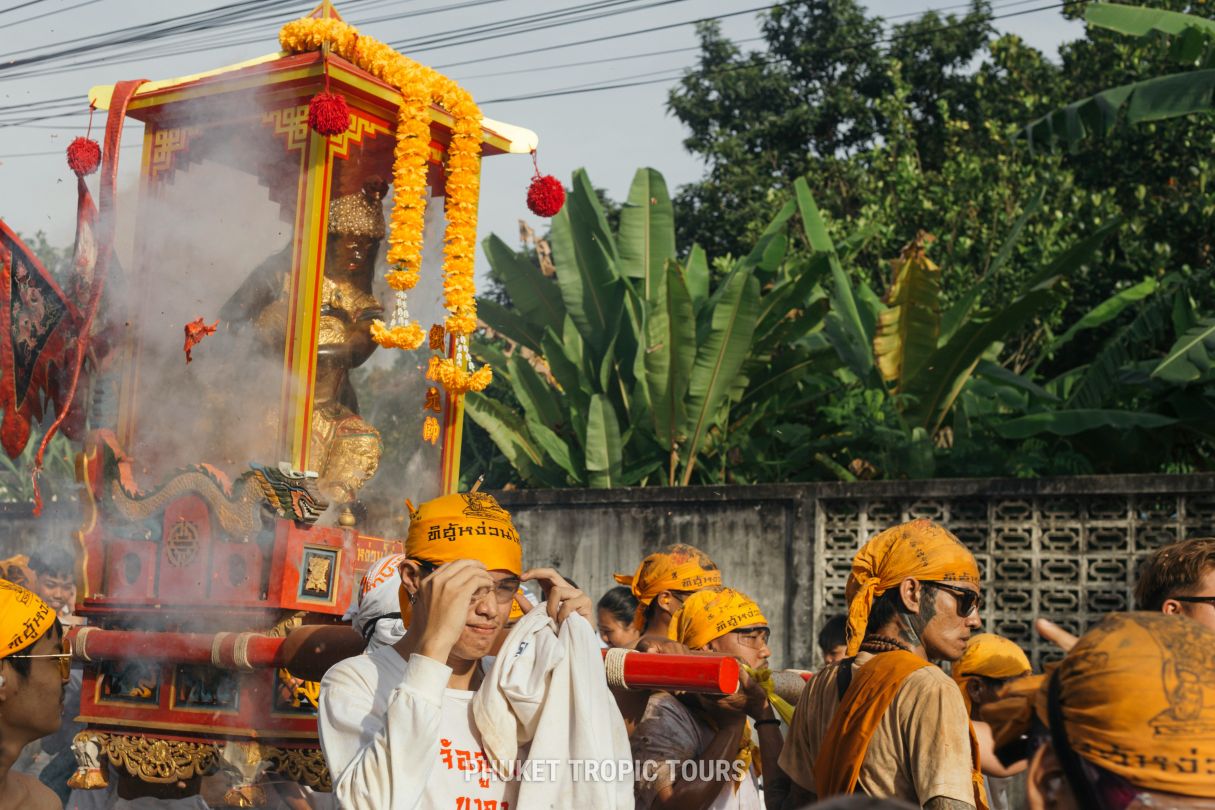
Conclusion
If you plan to visit Phuket in late September or October, the Vegetarian Festival could be an excellent opportunity to explore the island's unique culture. Despite not being the most stable time for beach holidays, participating in this event will provide you with unforgettable impressions. You can choose the most interesting moments of the festival: become a spectator of the impressive processions, observe captivating rituals like walking on coals, or simply enjoy the atmosphere at markets with a variety of vegetarian dishes.






